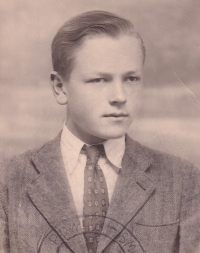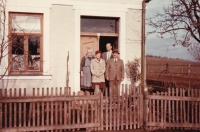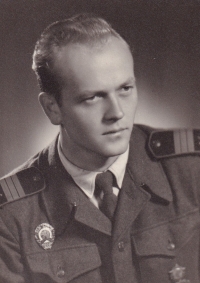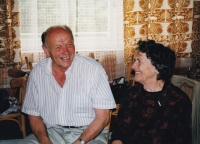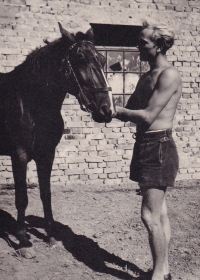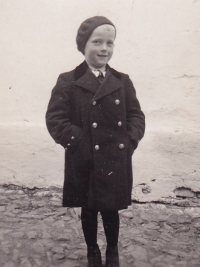They took the prisoners behind the brickyard and shot them. They did what was done to them.

Download image
Milan Knížátko was born on 12 May 1928 in Vranov nad Dyjí. He grew up with his parents - Jan and Božena - and three siblings in Těšetice in the Znojmo region. The family had to leave the Sudetenland in 1938 and settled down with his grandparents in Budkovice. They never returned to Těšetice. In 1944, Milan Knížátko began to cooperate with the local partisans. At the beginning of 1945, he became a member of Dr. Josef Hybeš’s partisan squad and, at the age of seventeen, took part in a number of resistance actions with a gun in his hand. After the war (1948 to 1952) he graduated from the Higher Vocational School of Forestry in Písek and then entered the military service in Opava. During his life he changed several workplaces. In the second half of the 1950s, under pressure from his superiors, he joined the Communist Party of Czechoslovakia. At that time he worked at the Moravian-Krumlov Forestry Works, where he met his wife Miroslava Sekvencová. In the mid-1960s, they moved to a cottage near Němčice, where Milan worked as a forester. At this time the State Secret Police (StB) tried to persuade him into cooperation. In 1970, he failed a normalisation check, and lost his job, his membership in the Communist Party and his gun licence. Before his retirement in 1988, he worked as a manager of a dispatch warehouse in Zastávka. At the time of the interview (2021) Milan Knížátko lived in Budkovice.
